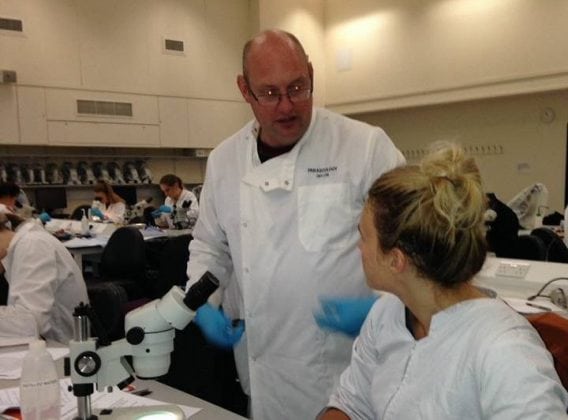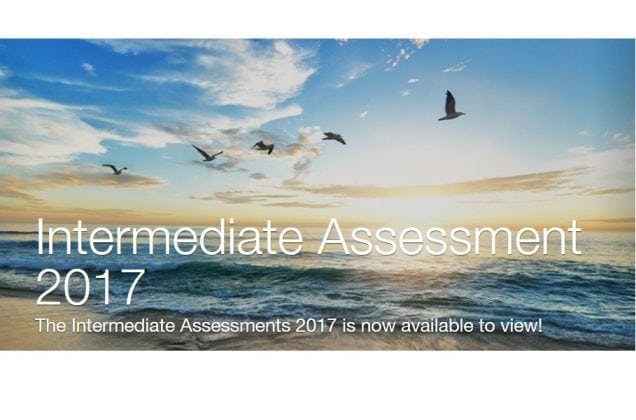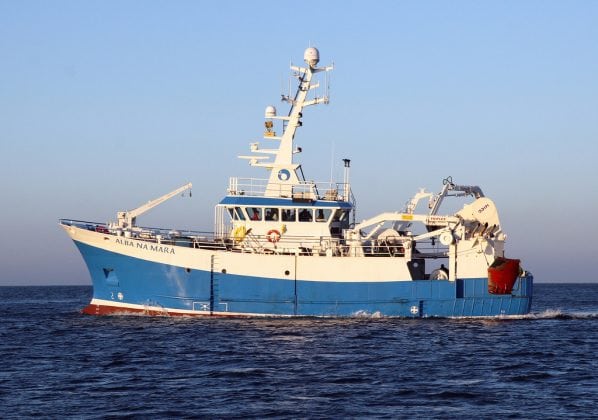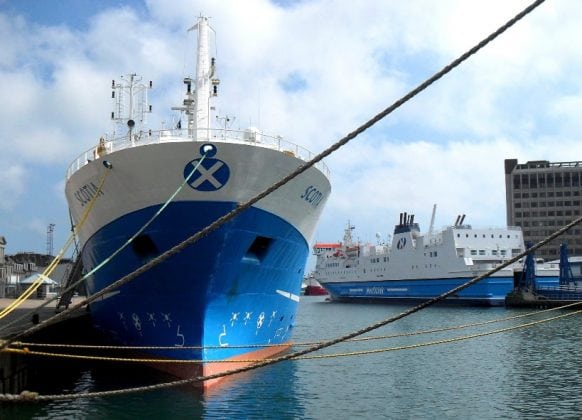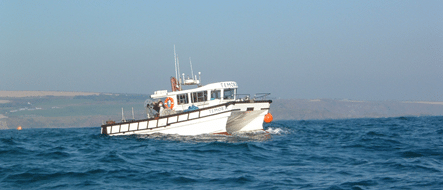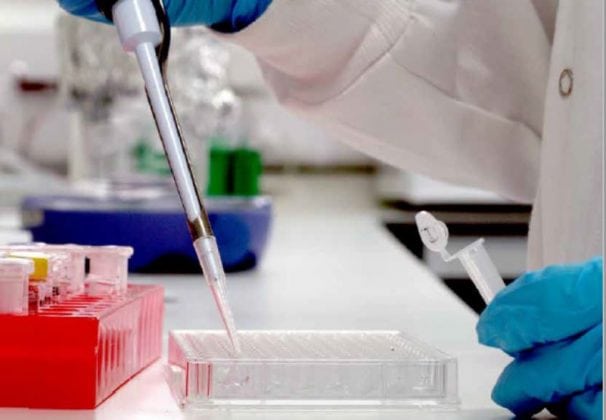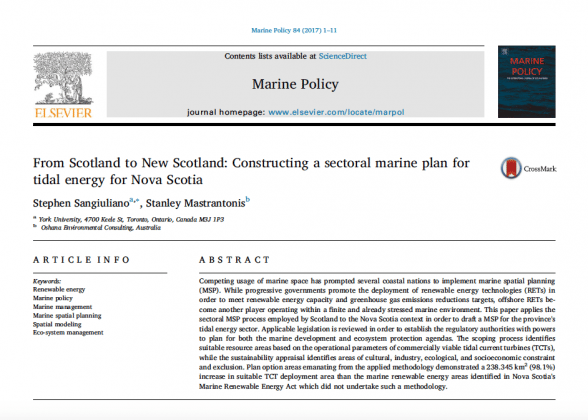Marine
-
Joint Warrior Training Activity: 30th September – 12th October 2017
27th September 2017 by Marine Scotland Communications
Exercise JOINT WARRIOR 172 (JW172) will take place between 30 September and 12 October 2017, delivered by the Joint Tactical Exercise Planning Staff (JTEPS) from Faslane. It is a programme of exercises conducted across the UK by land forces, warships, submarines and aircraft from 14 Nations. The majority of the maritime and air activity will be focussed...
-
The Scotia went to CTD to see what she could ADCP
25th September 2017 by Marine Scotland Communications
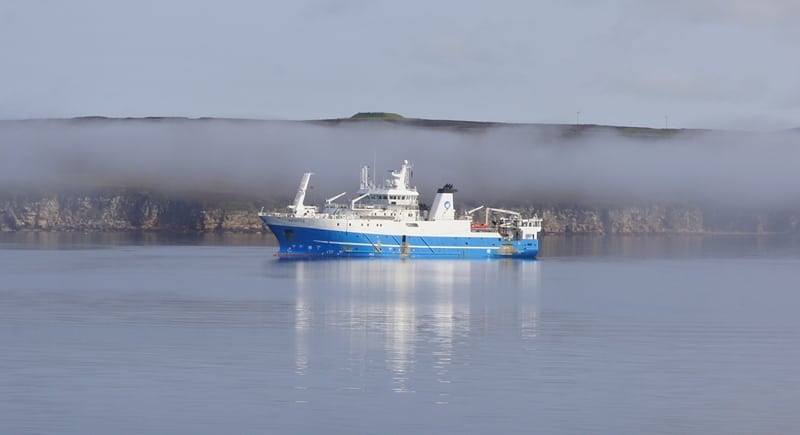
Duration: 6-16 October 2017 Gear Sea-Bird CTDs (Conductivity, Pressure & Depth), ADCP (Acoustic Doppler Current Profiler) instrumentation and AL-200 frame, water filtering equipment, bacteria sampling and experimental equipment, including bacterial culture equipment with CO2 gas enrichment (HWU), mooring equipment and recovery trawl. Objectives Test the CTD in the Buchan Deep off Peterhead Perform hydrographic sampling...
-
Knowing your parasites – inside and out
20th September 2017 by Marine Scotland Communications

Ensuring Scotland’s marine environment is managed effectively and sustainable is crucial for future generations – and this includes, literally, all creatures great and small. To support this, in September, representatives from Marine Scotland, Aberdeen University and the University of Cape Town hosted a two day MASTS-funded workshop in Aberdeen focussing on “Parasites of Commercially Important Marine Fish Species and...
-
IA2017 – Eutrophication is still a problem in some areas
18th September 2017 by Marine Scotland Communications

Eutrophication is the result of excessive enrichment of water with nutrients. This can cause accelerated growth of algae (phytoplankton) and plants. This may result in an undesirable disturbance to the balance of organisms present and ultimately to a decline in the overall water quality. Eutrophication is not always a local problem. Water masses continuously move...
-
Surveying Scotland’s Priority Marine Features
15th September 2017 by Marine Scotland Communications

Duration: 21 September – 10 October 2017 Gear New drop/lander frame + calibration mesh HD TV system + lights Armoured cable + spare + axle stands Stereo TV system Background and Objectives 1617A will survey the waters around the Small Isles Marine Protected Area (MPA). The primary objective of this survey is to survey monitoring...
-
Trawling in the deep with the Scotia
13th September 2017 by Marine Scotland Communications

Duration: 15-28 September 2017 Gear BT 184 Deepwater trawl with 16“ ground-gear and Morgere 1700 kg doors (monkfish) Groundgear Bosom bag for BT184 Agassiz trawl Objectives To map the composition, distribution and abundance of continental slope species including invertebrates on the deepwater slope west of the Hebrides and Rosemary Bank to depths of 2000 m....
-
Opening the Doors on Coastal Monitoring
12th September 2017 by Marine Scotland Communications

Staff at Marine Scotland are busy preparing for Aberdeenshire Doors Open Day on the 16th September. Located in the courtyard of the Tollbooth Museum by Stonehaven harbour between 10am until 4pm, they will be presenting a display about the renowned Scottish Coastal Observatory site located 5km offshore from Stonehaven. For the last 20 years, environmental factors at sea such...
-
IA2017 – New developments in the way biodiversity is assessed
11th September 2017 by Marine Scotland Communications

OSPAR is committed to protecting and conserving ecosystems and biodiversity through the management of human activities, guided by an ecosystem-based approach to management. The development of internationally coordinated biodiversity indicators is a relatively new field for OSPAR. In the Quality Status Report 2010, OSPAR assessed ten ecological quality objectives developed for the North Sea which...
-
Who you gonna call? Diagnostics!
8th September 2017 by Marine Scotland Communications

You might not know this, but Marine Scotland is classified as the Scottish National Reference Laboratory (NRL) for crustacean, fish and mollusc diseases within the European Union. So what does that mean? Well, in practice it means that we have expertise and knowledge of a wide range of techniques and methods that can be used...
-
Scottish Plans inspire Canada
6th September 2017 by Marine Scotland Communications

Scotland is well placed to take a global lead in the exploitation of marine renewable energy, boasting a substantial resource potential estimated at 25% of Europe’s tidal resource, 25% of its offshore wind resource and 10% of its wave potential. In order to sustainably develop the offshore marine renewable energy industry in Scottish waters, Marine...

